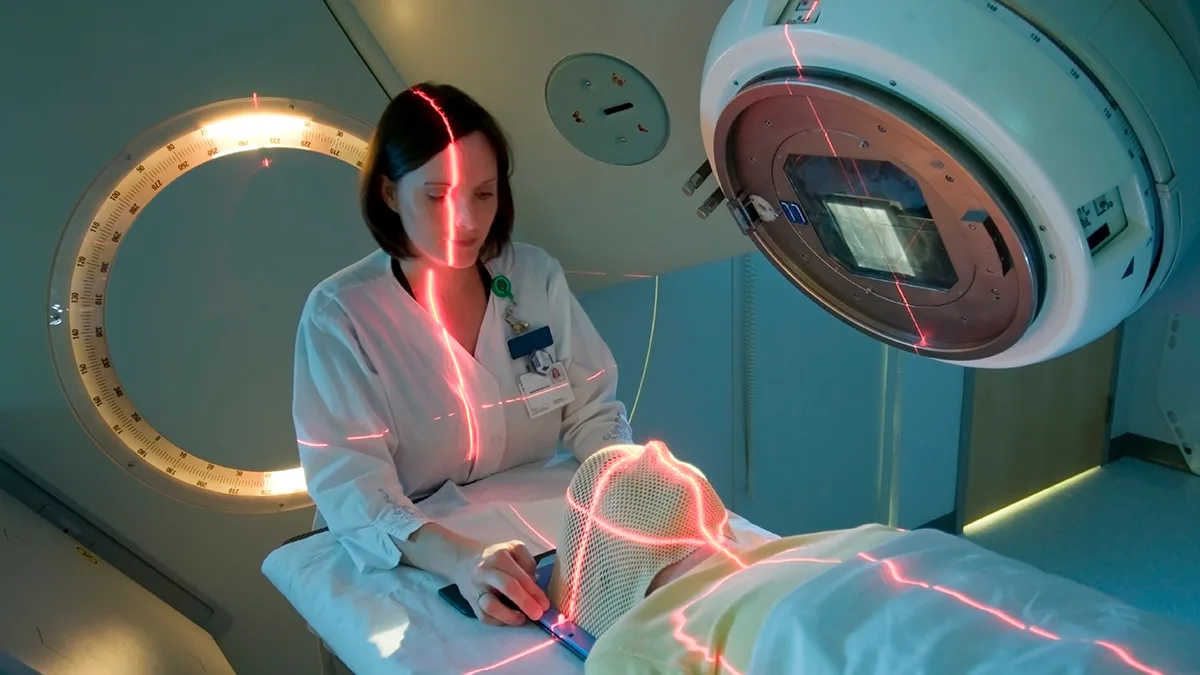
Overview
Advocating health policy, economics and technology for US hospitals is a role Charles N. "Chip" Kahn, III, MPH, readily takes on as President and CEO of the Federation of American Hospitals.
President and CEO of the Federation of American Hospitals on the future of care delivery
Advocating for tax-paying hospitals as they navigate changes in U.S. health policy, economics and technology, particularly AI, is a role that Charles N. "Chip" Kahn, III, MPH, readily takes on as President and CEO of the Federation of American Hospitals.
FAH represents 20 percent of US hospitals, primarily tax-paying institutions like HCA Healthcare, that include teaching, acute, inpatient rehabilitation, behavioral health, and long-term care facilities.
Kahn sat for a conversation with Seema Kumar, CEO of Cure, at the recent C3 Summit. He shared his thoughts on the opportunities in healthcare, the role of data and AI, and the need for policy makers to keep pace with rapid advancements.
Opportunities for Innovation in Healthcare
For Kahn, the future of healthcare is filled with possibilities, especially when it comes to precision medicine and global collaboration. “There’s just tremendous opportunities, opportunities to do so many more procedures and diagnostics and treatments in similar, more precise ways,” Kahn said. He explained that healthcare systems around the world are discovering similarities in care practices, leading to cross-border collaborations that foster innovation.
Reflecting on the international "Future of Health" initiative, which he helped launch in 2018, Kahn emphasized the importance of these collaborations. “What has been striking to me is... the commonalities and that collaboration that comes out of these meetings,” he said. While the financing models for healthcare may differ globally, he noted, the care provided is remarkably similar and helps create a foundation for shared learning and cooperation to help improve patient outcomes.
Harnessing Data and AI to Transform Healthcare Delivery
One of the most significant advancements Kahn sees is the growing role of data and artificial intelligence (AI) in healthcare. However, he acknowledges that the road to leveraging these technologies effectively has been uneven.
“We’ve gotten a bumpy start with the proliferation of medical records [systems], but we now have incredible data capacity and data ability,” Kahn said.
The key challenge, he believes, is figuring out how to make the most of the data in electronic medical records to improve care. “With the advent of AI... we can tap into that data and really understand what we’re doing much better,” Kahn said.
In his view, hospitals have pushed the organizational side as far as they can, and the future lies in manipulating and analyzing data to gain deeper insights into hospital operations and patient care.
Kahn also highlighted the potential of AI in revolutionizing how patients with specific medical conditions are treated. “In a sense, traditionally, medicine has been relatively blunt... But in the future, what we’re going to be able to do... is precision medicine, medicine designed for that patient’s specific condition.” Kahn believes that by understanding data better, physicians will be able to tailor treatments more accurately to individual patients.
He gave the example of sepsis, a potentially life-threatening condition that is notoriously difficult to detect and treat in its early stages. Kahn is confident that advancements in AI and data analysis will soon make it possible to detect sepsis immediately, understand it fully, and eliminate it as a major health issue. “There are other kinds of illnesses that I think we’re going to be able to deal with, because we’ll be able to understand them better,” Kahn said.
The Role of Policymakers in Driving Healthcare Transformation
While technology and innovation are transforming healthcare, Kahn expressed concern about whether policymakers are keeping up with these advancements.
“I worry that general concerns about AI could get in the way of advancing the ability to innovate, at least in the healthcare area,” Kahn said.
He also pointed out the longstanding issue of healthcare costs, noting that new technologies, while promising, often bring additional expenses rather than cost savings. “My experience in healthcare has been that new technologies always seem to bring you costs rather than cost savings,” he said. Kahn hopes that AI and data analysis will eventually help reduce costs, but he remains cautious about how quickly that change will come.
Kahn has spent more than four decades working on healthcare policy, particularly in the U.S. context, and he acknowledges the complexity of the political landscape. “I do worry whether the politics of the day can deal with some of the complexities that we’re talking about in healthcare,” he said. He reflected on a time when there was more consensus around healthcare reform, but today’s political climate makes him less optimistic about the ability to drive meaningful change.
Still, Kahn remains optimistic that healthcare will continue to advance, even if progress is slower than he would like. “I wonder sometimes whether the healthcare system succeeds for us despite the policymaking rather than because of the policymaking,” he said.







